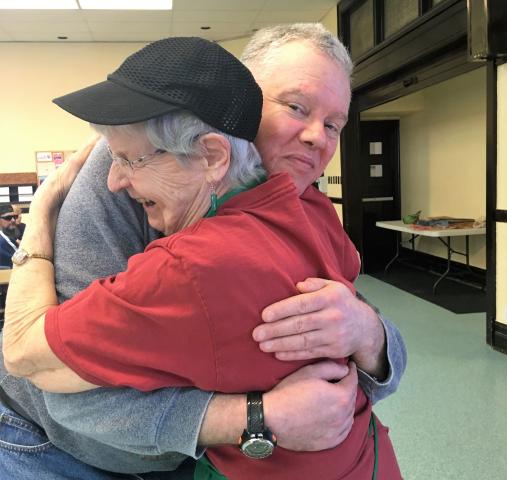Tessa Blaikie Whitecloud writes that neighbourhoods should be places where everyone is given a chance at the best life.

Today a community nurse called me from one of our community drop-in centres. Someone she is supporting is about to be homeless. Joseph is already in social housing, but the rise in violence in the block as a result of meth use has triggered his anxiety. Someone else in the building had long ago decided Joseph was an easy target for bullying. It is easy to want to be mad at Joseph's tormentor, but they are probably just reliving their own traumas on him. Joseph has been asking the building manager to help make the building safer and to reduce the amount of meth use in the building. He talked to his doctor about how he knows there are guns in his building now, as he hears through the paper-thin walls that one of his neighbours is selling them. He can't report it for fear of his own safety, and we can't report it because it will lead back to him.
Joseph and all people deserve the dignity of a safe place to live. Instead, Joseph is getting evicted this week.
His bully came after him again, and he broke. In a panic he was physically violent towards the bully. All of Joseph’s complaints about previous emotional violence were ignored, and now Joseph is the one in trouble.
It sounds like a dystopian drama, but it is actually our neighbourhood. Unfortunately, there was very little the community nurse could offer Joseph. If affordable housing, housing supports, and Universal Basic Income were available—things could be different.
Housing solutions for everyone means a variety of things. At the Canadian Alliance to End Homelessness (CAEH) Conference, which took place November 4-6, 2019 in Edmonton, we heard about many innovative projects. Here are some of the ideas currently being implemented across Canada:
- Congregant housing with rent geared to income, so people aren't lonely; or other ways of helping people live together within their means.
- Creating laws (and then making corporations abide by them) about the ratio of low-income housing built compared to single-family expensive units.
- Legalizing all drug possession for personal use to ensure that folks are not criminalized for addictions instead of receiving help.
- Housing with support for people with mental health issues.
- “Family Togetherness” projects that pay for children to stay with their families instead of facing the trauma of family break up. Poverty should not be grounds for apprehension from loving parents.
- Direct payment projects that give autonomy to people experiencing homelessness and sees many of them find their way to a housed and happier life.
- Meaningfully addressing colonization through healing supports and housing for Indigenous people experiencing homelessness.
- “Tiny House” projects in rural areas allowing homeless youth a sense of their own place.
The scariest truth of the CAEH Conference was when research from the 1960s was cited. Even then, we knew Universal Basic Income was the best way to improve the health of all. More recent research from 2015 (The Social Determinants of Health in Manitoba, by Lynne Fernandez, Shauna MacKinnon & Jim Silver) shows that Universal Basic Income allows:
- Reduced use of health services
- Reduced burden of health concerns
- Reduced prescription and non prescription medication use
- Reduced overall crime
- Reduced in substance abuse
- Increased education for participants
- Increased employment for participants
- Increased family wellness
I was not around in the 1960s, but it seems to me if we knew what was right then and have not yet done it, we are doing a disservice to ourselves, and our communities. I want neighbourhoods to be places where people share, where people ensure each other are okay, where we give everyone a chance at the best life, and as a result, all participate in the joy of a safer, happier and healthier community. The current system does not give people a chance. Over 90 per cent of Canadians born to an economically oppressed family are dying, often early and still impoverished.
I implore you on behalf of Joseph and all of those like him, to ask your public officials to ensure your neighbours’ dignity. As much as we love the guests who access our community services, the truth is we would rather not be there to serve them, because they do not need us.
This is a realistic goal—not an improbable utopia. We have known for far too long that we can and should be doing better.
Let us answer that call.
— Tessa Blaikie Whitecloud, Executive Director at 1JustCity in Winnipeg. Tessa was one of three United Church representatives at the Canadian Alliance to End Homelessness Conference in Edmonton, November 4-6, 2019. 1JustCity is an organization that supports three United Church community ministries in Winnipeg: West Broadway Community Ministry, St. Matthews Maryland Community Ministry, and Oak Table Inc.